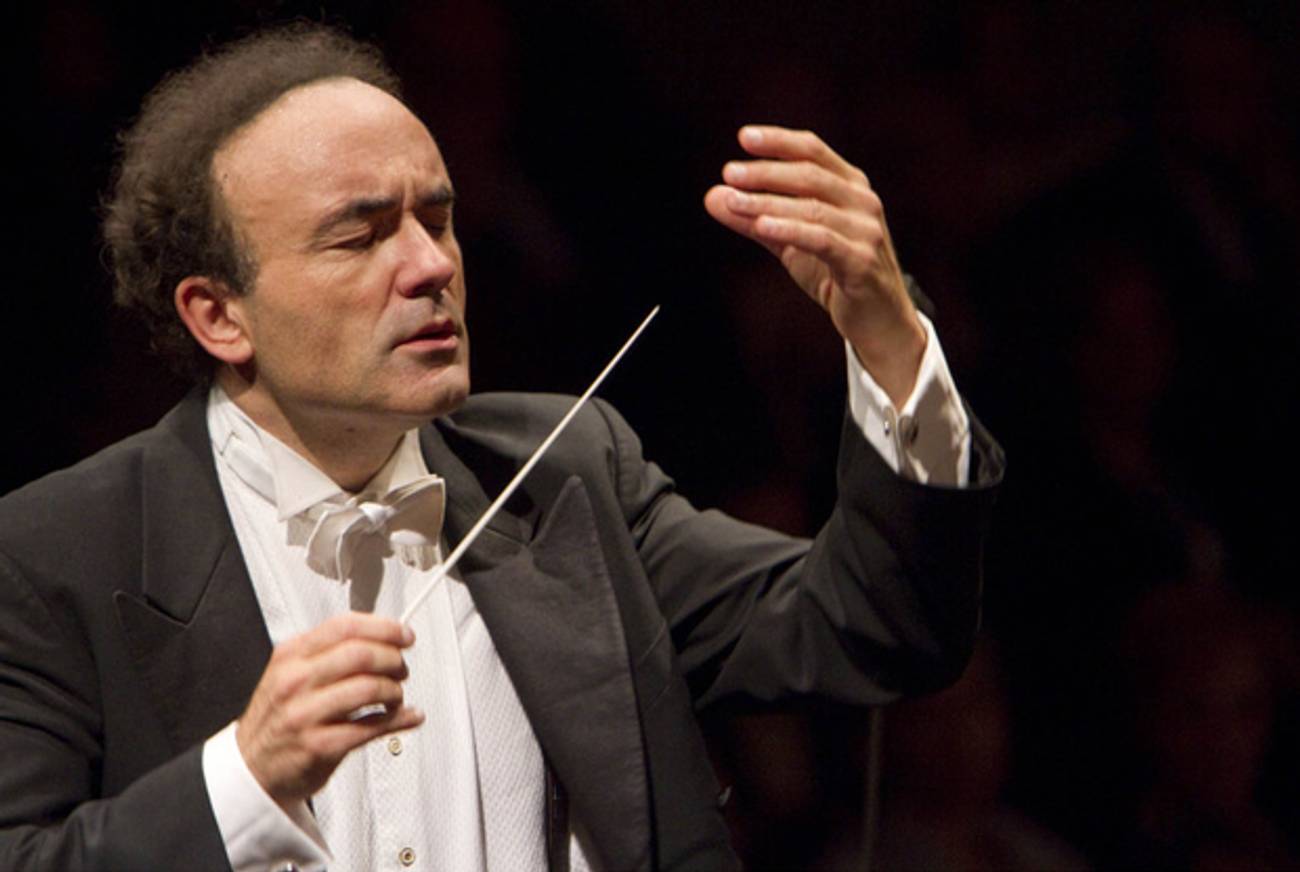‘Hatikvah’ Banned at the Tel Aviv Opera
Parisian-born conductor not allowed to commemorate France attacks onstage




In 1917, a Russian conductor named Mordechai Golinkin was moved to the core after hearing news of the Balfour Declaration. Denied the baton at St. Petersburg’s famed Mariinsky Theatre because he was Jewish, Golinkin imagined a thriving opera company in the soon-to-be reclaimed Promised Land, with himself at the helm. To anyone who would listen, he thundered that national revival was impossible without an artistic renaissance, which was yet another reason why Tel Aviv needed a hall for the tenors to boom just as they did in St. Petersburg or Warsaw or Milan. Golinkin cobbled together a small choir and took it on the road, with all income dedicated to the cause. The tour’s highlight was a gala performance in St. Petersburg, now called Petrograd: before Golinkin and his crooners took the stage, Feodor Chaliapin, one of the world’s most celebrated opera singers, stepped forward and sang “Hatikvah”. It was an expression of solidarity and of hope, one musician ensuring another that art will always triumph over bigotry.
Except, apparently, in Tel Aviv’s opera: the company Golinkin himself eventually helped create disgraced his memory on Saturday night when it denied a request by its Parisian-born conductor, Frédéric Chaslin, to commemorate the killing of 17 people in his native town earlier in the week by playing “Hatikvah” and saying a few words. Denied this basic gesture, Chaslin refused to take the podium and sat the concert out.
When pressed for a comment, the opera had this to say: “For the 30 years that the opera has been in operation,” went its official statement, “it has insisted on maintaining its routine even on the painful days of dozens of terror attacks and during wars. This is the way of the opera — not to allow terror to win and disturb the routine of our lives.” As if the sole opera company in the world’s only Jewish state singing the national anthem is somehow a triumph of terror. As if a few heartfelt words from the son of Holocaust survivors lamenting the fact that his home town was once again bloodied by murderers who singled out Jews would have been much of a disturbance to the precious routine of unwrapping lozenges and sneaking in one last cough before the arias begin. As if the point of art is that imperiousness should always triumph over empathy and compassion. This is not the crown jewel Golinkin had imagined, and not the impassioned cultural institution the Jewish state needs if it is to absorb the waves of those who rush to it in search of safety. Surely the municipal funds that currently make up 40 percent of the company’s budget have some other, better use.
Liel Leibovitz is editor-at-large for Tablet Magazine and a host of its weekly culture podcast Unorthodox and daily Talmud podcast Take One. He is the editor of Zionism: The Tablet Guide.